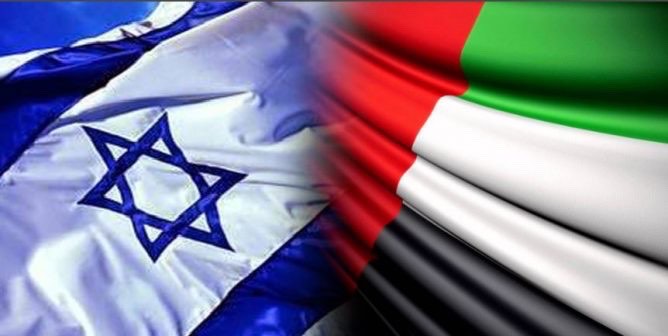The August, 13 announcement of establishing of full diplomatic relations between Israel and UAE have come as a major surprise to many political and diplomatic watchers. After signing of Peace and Friendship treaty by Egypt with Israel in 1979 followed by Jordan in 1994, UAE is the only third Arab country to establish full diplomatic relations with Israel.The move also took Palestinian leadership by surprise who have termed it as a ,” stab in the back”. President Trump in his tweet described this as a ,” historic breakthrough “. The likely geo- strategic impacts of this diplomatic overture, especially related to already turbulent ME Region are analyzed in the ensuing paragraphs .
The relations between Israel and UAE have followed an evolutionary path ever since state hood of UAE in 1971. There are hundred if not in thousands,of business firms based in UAE with direct or tacit linkages to Israel or a Jewish ownership. Informal diplomatic contacts between the two countries at various capitals and on the side lines of U.N. sessions have been going on for quite sometime. A prominent manifestation has been Israel stationing it permanent mission at International Renewable Energy Agency few years back,in Abu Dhabi . The final transformation of relations is driven by both Geo- strategic compulsions and technological benefits which can accrue from Israel besides sale of oil to Israel by Abu Dhabi.
In geo- strategic perspective, Iran factor has been a pre dominant consideration, given Saudi Arabia, US , both close allies of UAE and Iran ongoing confrontations. GCC block perceives Iran with its ever growing influence in ME especially in Syria, Iraq, Lebanon and Yamen as their main threat and not Israel. Israel also has world’s top of line technologies in agriculture, biomedical, arid zone farming and could also provide education opportunities in its universities and tourism. This thaw in relations between Israel and UAE will also appease strong Jewish lobby in USA. Israel would benefit by increasing its acceptability in the Arab world and an endorsement of its policies vis a vis Palestine.
The timing of announcing this move are intriguing especially when US Presidential elections are only few months away and future political dispensation in Washington will determine further contours of US policy towards Israel. Apprehensive of a Democratic US president and likelihood of restoration of US- Iran deal, UAE has also prompted to appease US pro Israeli policy makers against such a possibility.Another negative has been Israeli PM Netanyahu announcement in July of annexing 30 % of West Bank,a severe setback for the Palestinian cause. The deal with Israel has the ‘ sugar quoting’ of Israel temporarily suspending its plans to annex West Bank.The final push has probably been the result of goading of Pompeu-Kushner duo and Saudi factor. Post COVID-19 and falling demands of oil, Saudi Arabia and other Gulf states have become more vulnerable to US pressures for their survivals . Israel- UAE full fledged diplomatic relations are likely to be followed by other Arab countries like Oman, Bahrain, Morocco etc while Saudi Arabia, instead of a full recognition,would continue to have covert relations on denial basis .
The ME region is being shaped into visible alignments of a pro US Block consisting of Israel, Saudi Arabia, GCC countries while Iran,Turkey,Qatar with support of Russia and China are other major power brokers . In this geo- strategic mosaic, it is imperative that Iraq treads its path very carefully. Due to its fragile demography and sensitivities to relations with both US and Iran it is imperative that external policies are carefully balanced. This is only possible through internal peace and cohesion of the society. All salient foreign policy decisions need to be postponed till the outcome of US Presidential elections and policy formulation have been crystallized.

